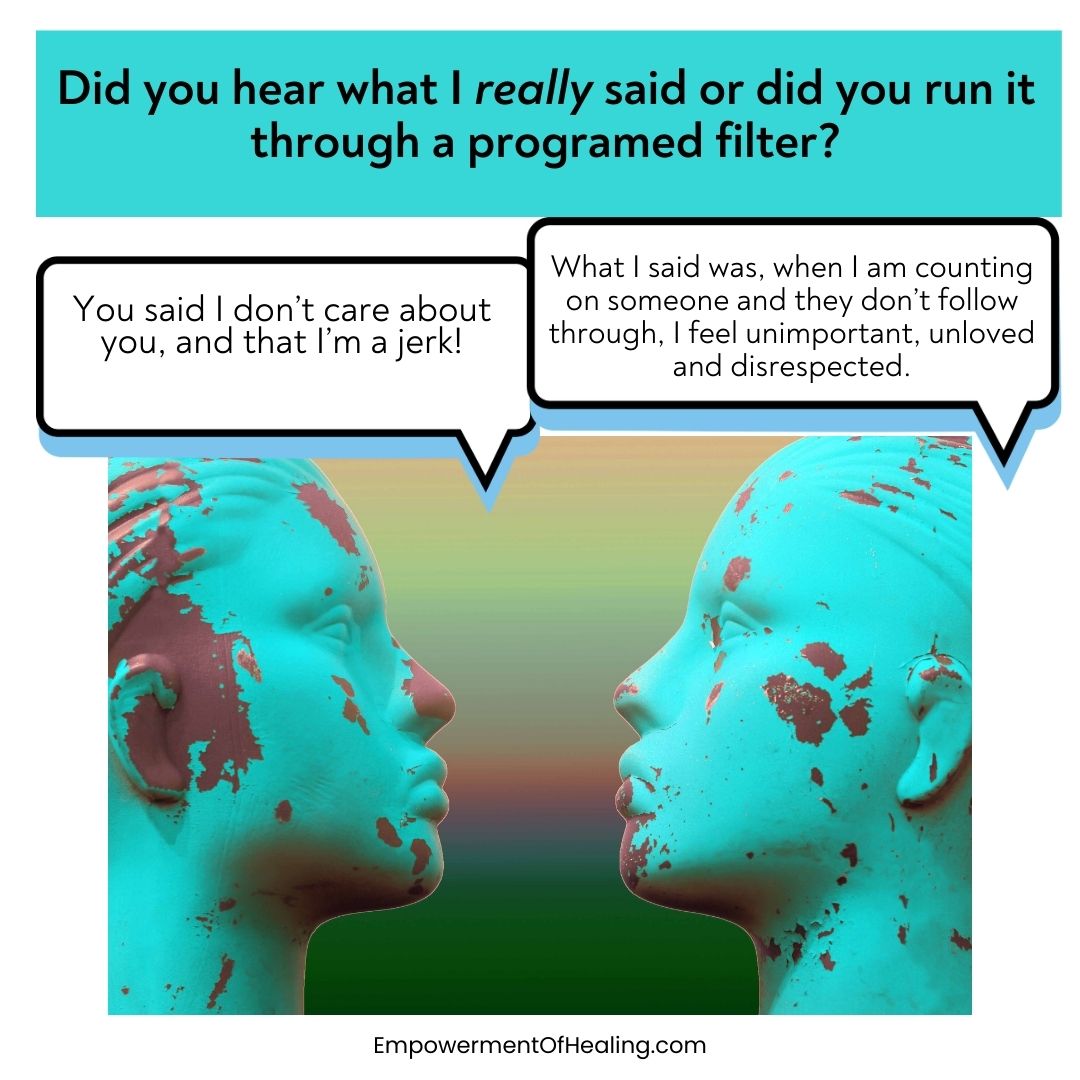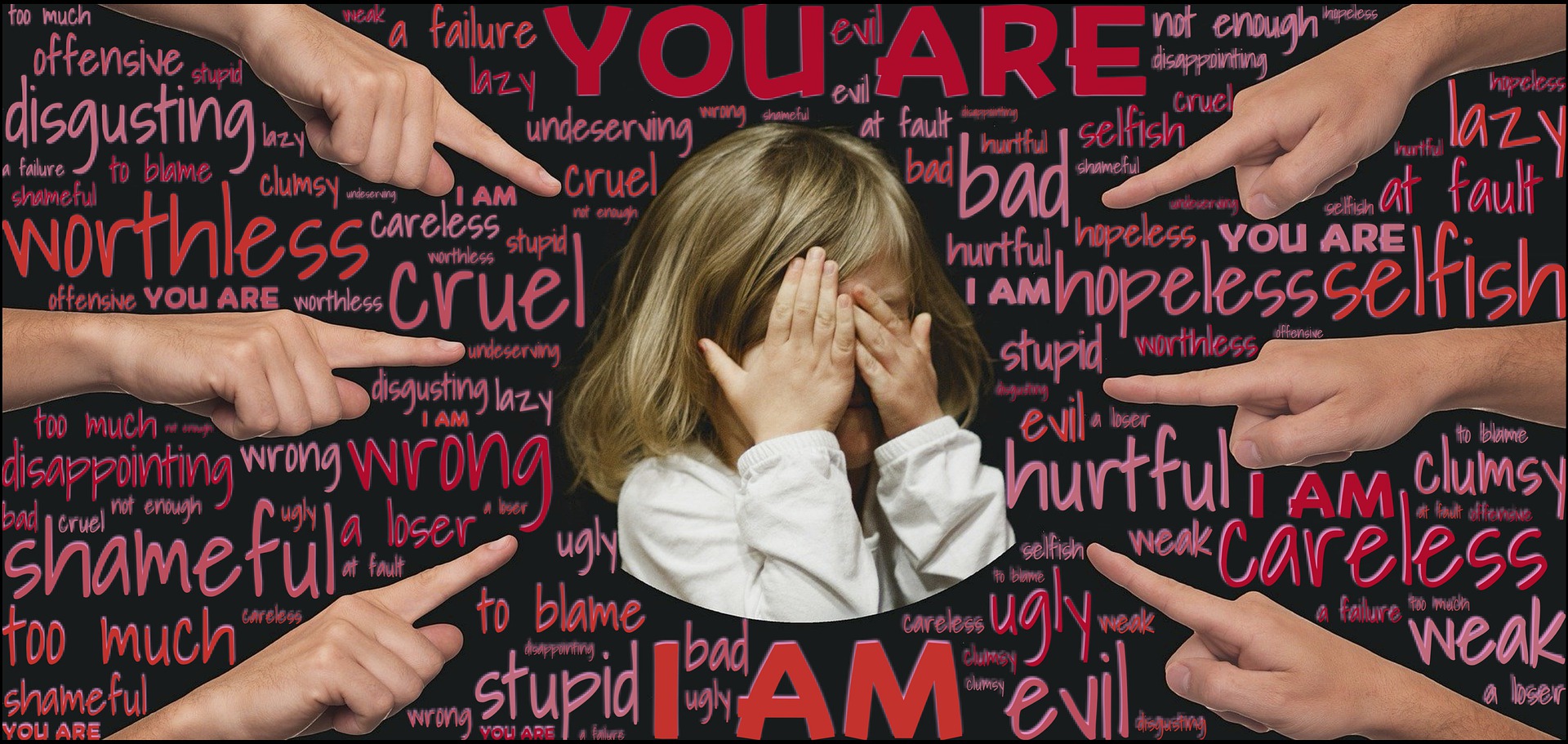Communication is the foundation of every relationship we have, whether with a partner, friend, family member, or colleague. It is how we share our thoughts, express our emotions, and build understanding. Yet, communication is far more than just the words we say—it’s how we interpret and receive the words of others. When communication flows with empathy and clarity, it can nurture and deepen connections. But when misunderstandings arise, it can lead to confusion, hurt feelings, and distance.
Are you running conversations through a filter?
One of the key reasons communications can be challenging is that we all filter what we hear through our own experiences. Our upbringing, childhood events, and past traumas can shape how we perceive the words spoken to us. For example, if someone has experienced a lot of criticism in their early years, they might hear a simple comment like “That could have been done differently” as an attack or judgment, even if that wasn’t the intention. These filters can dramatically change the context of what is being said, and without realizing it, we may be responding to something the other person never meant to say.
Confirm what you are hearing…
When you feel triggered by something someone says, take a moment to reflect on how you heard it. Instead of reacting defensively, gently repeat back what you heard: “When you said [repeat the comment], I heard it as [how you interpreted it]. Is that what you meant?” This simple step can open a door to deeper understanding and avoid unnecessary conflict. Often, you’ll find that the other person may not have meant their words in the way you interpreted them, and this allows them the chance to clarify. My sister and I were great examples of miscommunication. One year I asked her to help me prepare for Christmas dinner, and she heard that I needed help setting the table and putting the food out. What I thought I was saying was, “I need help cooking and cleaning”. When she arrived at my home, I was feeling hurt and unappreciated, and she was looking at me like I had three heads. After a bit of a heated discussion, we started laughing and realized that I did not communicate my actual needs, and she had no idea what they were. After the Christmas blowout, we thought we had communication down. A few years later, I was making an appointment for us to have our nails done. I scheduled the appointments at a time that I thought would be good for her, even though it was not as convenient of a time for me, and I was willing to sacrifice. She agreed to the time, thinking it was a good time for me even though it was not the best time for her. It turns out that we were both trying to accommodate each other’s time without asking each other and just assuming. A time adjustment of an hour later would have been better for both of us.
Be mindful of your words.
In moments of disagreement, it’s crucial to choose your words with care. Avoid using statements like “You always” or “You never,” as these can make the other person feel unfairly judged or attacked. These kinds of blanket statements tend to shut down communication rather than open it up. Instead, focus on how the specific situation makes you feel, using “I” statements such as “I feel hurt when…” or “I need help with…” This shifts the conversation from blame to a space where both parties can feel heard and understood.
Most importantly, resist the urge to name-call or belittle the other person. Words spoken in anger can create wounds that are difficult to heal, and they rarely lead to resolution. Kindness, even in disagreement, is essential. Compassionate communication allows for both people to feel safe and respected, ensuring that conflicts are navigated with care.
By becoming mindful of our communication, we can foster deeper trust and intimacy in all our relationships. It’s not about getting it perfect every time but about striving for understanding, practicing empathy, and being open to seeing things from the other person’s perspective. With this approach, even the most difficult conversations can become opportunities for growth and connection.
For information on “Five ways to improve your listening skills” and “Five ways to improve communication skills”, click on this link that will take you to the blog on my website or go to EmpowermentOfHealing.com and click on the Empowerment Tools tab to print or download them.
Improving your listening skills is essential for building strong relationships and understanding others better.
Five effective ways to enhance your listening abilities:
- Be Fully Present: Make a conscious effort to be present in the moment when someone is speaking. Put away distractions like your phone or computer and focus on the speaker. This not only shows respect but also allows you to absorb their message more effectively.
- .Practice Active Listening: Engage with the speaker by nodding or using small verbal affirmations like “I see” or “I understand.” This encourages them to continue and shows that you are genuinely interested in what they are saying. Additionally, try to paraphrase what they’ve said to ensure clarity and show that you are truly listening.
- Ask Open-Ended Questions: Encourage deeper conversations by asking open-ended questions that invite the speaker to elaborate on their thoughts and feelings. Questions like “How did that make you feel?” or “What was the most challenging part for you?” demonstrate your interest and can lead to more meaningful dialogue.
- Avoid Interrupting: Allow the speaker to finish their thoughts before responding. Resist the urge to interrupt or jump in with your own experiences. This shows respect for their perspective and helps you fully understand their message before offering your input.
- Reflect on Your Listening Habits: Take some time to reflect on your listening skills after conversations. Consider what went well and what could be improved. You might even ask for feedback from friends or colleagues about your listening style. This self-awareness will help you identify areas for growth and enhance your overall effectiveness as a listener.
Improving communication is a valuable skill that can enhance connections and understanding in both personal and professional relationships.
Five exercises or ways to help convey your message more effectively:
-
- Active Listening: Practice truly listening to others without formulating your response while they speak. This means being fully present and showing empathy. After they finish, summarize what you heard to confirm understanding. This fosters a supportive environment and demonstrates that you value their perspective. 2.
- Use “I” Statements: When expressing your thoughts or feelings, use “I” statements to take ownership of your feelings. For example, say “I feel overwhelmed when deadlines are tight” instead of “You never give us enough time.” This approach reduces defensiveness and encourages a more open dialogue.
- Clarify Your Intent: Before you communicate, take a moment to clarify your intention. Ask yourself what you hope to achieve from the conversation. Being clear about your purpose helps you stay focused and ensures your message aligns with your goals.
- Practice Empathy: Put yourself in the other person’s shoes. Try to understand their emotions and perspectives, especially if there’s a disagreement. Acknowledging their feelings can help build rapport and encourage a more constructive exchange. 5.
- Nonverbal Communication: Be mindful of your body language, facial expressions, and tone of voice. Nonverbal cues often convey more than words. Practice maintaining eye contact, using open gestures, and adopting a calm tone to reinforce your message and show that you are approachable. Ignoring someone is never an option, it is like saying that person does not exist.
By incorporating these practices into your daily interactions, you can become a more attentive and compassionate communicator, fostering deeper connections with those around you.





